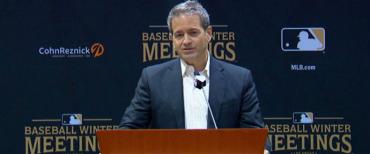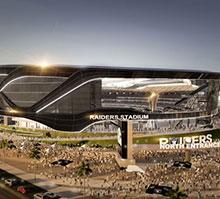
Pending legislation by a group of Oregon legislators would eliminate a $150 million state appropriation towards a Major League Baseball stadium in Portland.
It’s a blow to Portland’s hopes of luring an MLB team and a boost for competing cities, especially Las Vegas. The Tampa Bay Rays, suffering from a scarcity of local support, is the prime target of those cities.
Portland backers of an MLB team, known as the Portland Diamond Project, were counting on the state money, committed 15 years ago, to help finance the stadium at the Port of Portland along the picturesque Willamette River.
That, and questions about the proposed site’s accessibility are major setbacks for Portland’s longtime quest for big show baseball.
The fan-challenged Tampa Bay Rays and Oakland Athletics are considered by far the most likely franchises to relocate. Of the cities coveting Major League Baseball, Las Vegas, has the financing, an easily accessible potential stadium site, and local baseball fervor that has moved Sin City to the top of MLB’s relocation list.
Rays owner Stuart Sternberg asserted last month at Major League Baseball’s winter meetings that plans for a new stadium in Tampa’s Ybor City are dead. A couple of weeks later, Sternberg said the current home of the Rays, St. Petersburg’s Tropicana Field, would be reconfigured to contain several thousand seats fewer.
Those are the actions of an owner who does not include Florida, let alone the Tampa Bay area, in his long-range plans.
The new Tropicana setup actually contains far fewer seats than the blueprint for the failed Ybor City ballpark site. Tropicana will have even less seating capacity than many North American soccer stadiums.
There’s no doubt Sternberg, with the blessing of MLB’s other ownership groups, is looking to relocate the Rays to a city that will give him a modern stadium, national caché, and the promise of decent attendance and fan loyalty.
He has none of those in Tampa Bay. The prime movers of committing $650 million for a baseball stadium in Ybor City, Tampa Mayor Bob Buckhorn and Hillsborough County Commissioner Ken Hagan, are not exactly baseball boosters or denizens of Tropicana Field. The pair, along with developers Darryl Shaw and Jeff “Transit Tax” Vinik, stood to gain the most from the relocation on the taxpayers' dime.
There would have been no referendum or public hearings for the massive appropriation. The fast-buck artists involved in the scheme know it would not withstand public scrutiny.
The rumored site for a baseball stadium in Las Vegas is the 100 acres now consisting mostly of the Rio All Suites Hotel and Casino. It has ideal access from the fabled Strip and Interstate 15.
The sale and demolition of the Rio is almost a foregone conclusion, with gambling aficionados asking, where will the World Series of Poker be held when the Rio is gone?
And Vegas has become a hotspot for baseball. Fifteen years ago, the region would host no more than five youth tournaments a year. That number has grown to as many as 30 with Arizona and California coaches swooping in hopes of poaching emerging stars.

The paragon for the Las Vegas ballplayer is Bryce Harper, a local product who is on track to receive the most lucrative contract in baseball history as a free agent this offseason.
The Las Vegas metropolitan area population has mushroomed to 2.2 million, surpassing Tampa Bay. While Las Vegas appears on a fast track to obtaining an MLB franchise, Portland has hit speed bumps.
A group of five Oregon legislators sponsored a bill aimed at repealing laws passed in 2003 that allowed for up to $150 million in state-issued bonds to help pay for a MLB ballpark in Portland. The current law would tax the salaries of players and coaches who perform in the stadium to raise that money.
The proposed 32,000-seat Portland stadium sits on 45 acres in the northwest industrial part of the city. The nearest light rail station is 2 miles away and 1.5 miles from the nearest streetcar stop. One bus line is the only public transit service running past the proposed stadium site. There’s not even nearby freeway access.
The debate over the site’s practicality has become public, adding another obstacle to Portland’s quest.
Jim Bleyer, a former reporter at the Orlando Sentinel and Tampa Tribune, writes the Tampa Bay Beat blog.


